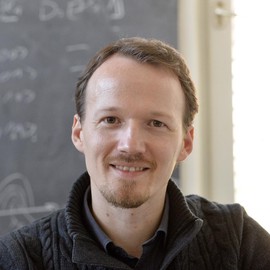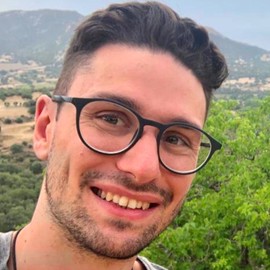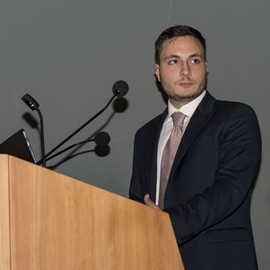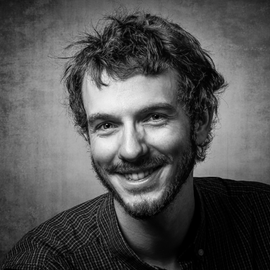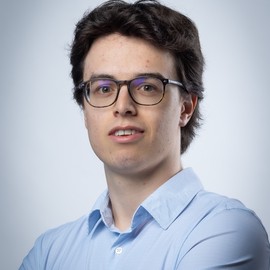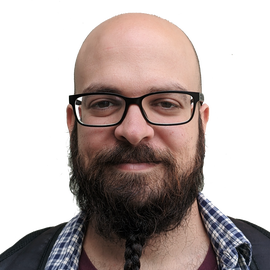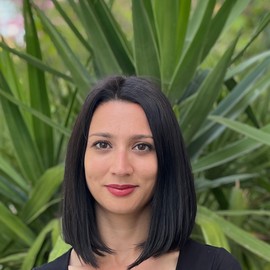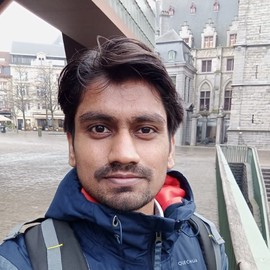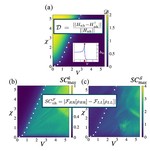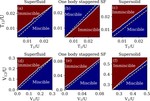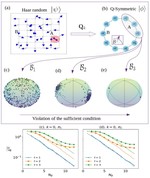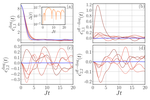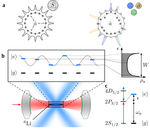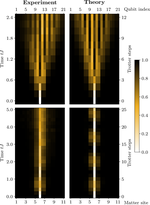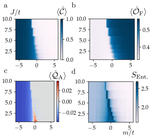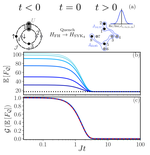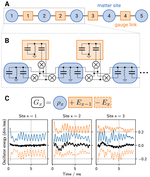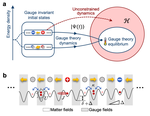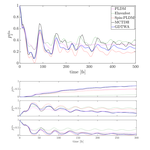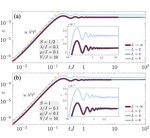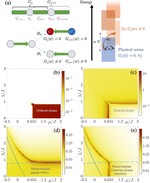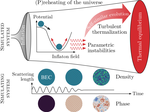Quantum Simulation
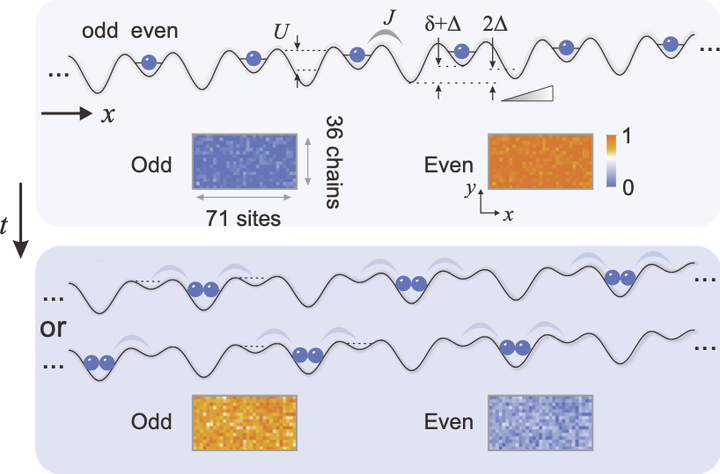 Quantum simulation of a $\mathrm{U}(1)$ lattice gauge theory on a Bose–Hubbard system;
Nature 587, 392–396 (2020)
Quantum simulation of a $\mathrm{U}(1)$ lattice gauge theory on a Bose–Hubbard system;
Nature 587, 392–396 (2020)
Many-particle quantum systems challenge us with a large number of fundamental open questions, such as the mechanisms behind high-temperature superconductivity or quark confinement. One obstacle for developing a full theoretical understanding of quantum many-body systems is the difficulty of solving them on classical computers, as the required computing resources grow exponentially with the number of constituents. In 1982, Feynman proposed an alternative approach to tackle such problems, namely to encode them in specifically engineered experimental systems that themselves are governed by the laws of quantum mechanics, a concept now termed “quantum simulation”. With their high degree of precision and controllability, current experimental platforms such as cold atomic gases, trapped ions, or superconducting qubits, are perfectly suited for this purpose.
In this project, we aim at identifying difficult problems and interesting phenomena that are worthy targets of quantum simulations, and to develop schemes to realize them in realistic experiments. Currently, we are especially interested in quantum transport and thermalization, strongly-correlated systems, topological phases of matter, and lattice gauge theories. We are also addressing a crucial challenge for the further development of the field, namely how to ensure the reliability of quantum simulators once they explore regimes where benchmarks with classical computers are no longer possible.
